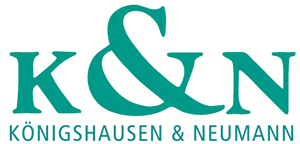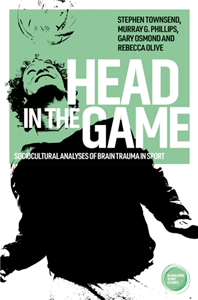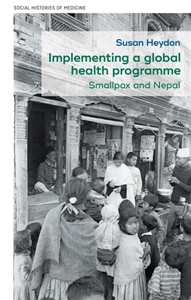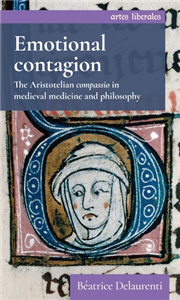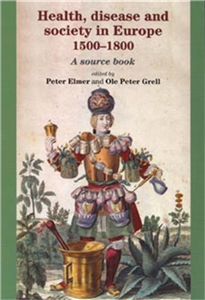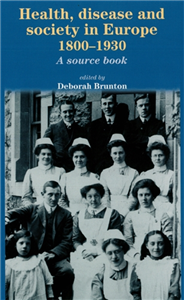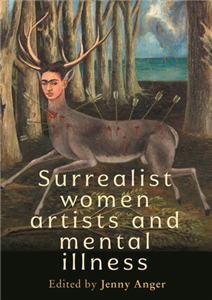Your Search Results
-
Königshausen + Neumann GmbH
The publishing house Königshausen & Neumann was founded in 1979 by the students Johannes Königshausen and Thomas Neumann and has quickly developed into a well-known publishing house for the Humanities in a national and international context. Today we have a backlist of more than 7,000 available (!) titles, with a focus on philosophy, literature and cultural studies, history, psychology, music and art. Our aim is to accompany developments in science with publications and to make developments in science visible and accessible as such in the first place. We want to be an echo chamber not of one thought, but of a plurality of thoughts. Wittgenstein's followers, for example, are represented in our programme, as are his critics. Our authors include philosophers such as Gernot Böhme, Otto Friedrich Bollnow, Karen Gloy, Friedrich-Wilhelm von Herrmann, Vittorio Hösle and Peter Sloterdijk, and literary and linguistic scholars such as Dieter Borchmeyer, Karl Corino, Ulrich Gaier, Walter Hinderer and Volker Klotz, Wolfgang Müller-Funk, Wolfgang Riedel or Hans Rudolf Vaget, psychologists like Johannes Cremerius, Roland Kuhn or Josef Rattner, musicologists like Hermann Danuser, Frieder Reininghaus, Hans-Joachim Hinrichsen, Arnold Jacobshagen, Barbara Meier, Anno Mungen or Arne Stollberg. Many scientists have taken their first steps at K&N. Robert Habeck has published his master's and doctoral theses at K&N. Artists are represented in our programme, such as Diana Damrau, Anja Harteros or Jonas Kaufmann, Marco Goecke or Robert Tewsley. Artists are brought into conversation in a unique way: Richard Wagner or Francisco de Goya, for example. Elazar Benyoëtz entrusts us with his work, but also the young generation of writers, such as Manfred Kern, Markus Orths or Sophie Reyer, published by K&N.
View Rights Portal
-
Promoted ContentMedicineJune 2025
Head in the game
Sociocultural analyses of brain trauma in sport
by Stephen Townsend, Murray G. Phillips, Gary Osmond, Rebecca Olive
Head in the game brings together international scholars from multiple humanities, social science, and scientific disciplines to critically examine one of the most vexing issues in global sport: concussion. It argues that science and medicine alone cannot solve the concussion crisis: sociocultural factors must also be considered. This edited collection draws attention to the ways that social, cultural, historical, political, literary, philosophical, and legal factors have shaped the concussion crisis in sport. Head in the game is essential reading for those who want to understand how the concussion crisis came to be, and provides guidance for developing ethical and evidence-based solutions in the future.
-
Promoted ContentMedicineApril 2021
Leprosy and identity in the Middle Ages
From England to the Mediterranean
by Elma Brenner, François-Olivier Touati
For the first time, this volume explores the identities of leprosy sufferers and other people affected by the disease in medieval Europe. The chapters, including contributions by leading voices such as Luke Demaitre, Carole Rawcliffe and Charlotte Roberts, challenge the view that people with leprosy were uniformly excluded and stigmatised. Instead, they reveal the complexity of responses to this disease and the fine line between segregation and integration. Ranging across disciplines, from history to bioarchaeology, Leprosy and identity in the Middle Ages encompasses post-medieval perspectives as well as the attitudes and responses of contemporaries. Subjects include hospital care, diet, sanctity, miraculous healing, diagnosis, iconography and public health regulation. This richly illustrated collection presents previously unpublished archival and material sources from England to the Mediterranean.
-
 Trusted Partner
2021
Trusted Partner
2021Haemophilia
Guidelines for pharmacists
by Dr. Carmen Escuriola Ettingshausen and Nico Kraft
With the introduction of emicizumab (Hemlibra®) onto the market in February 2018, the advising of patients with blood clotting disorders entered the realm of the pharmacy. After the German law for greater safety in the supply of medicines (GSAV) came into force in August 2020, all drugs for the specific treatment of blood clotting disorders associated with haemophilia – i.e., also products containing clotting factors – are distributed through pharmacies. This change in the law represents an opportunity and at the same time a challenge for pharmacies. A physician and a pharmacist answer questions about the fundamentals of the disease and how to handle its treatment: ■ What causes haemophilia and how is it manifested in patients? ■ Which drugs are used and how is treatment given? ■ What needs to be observed when supplying patients via the pharmacy? Patient, Haemophilia Centre, Pharmacy – seize the opportunity as a pharmacy and establish your position as a competent and reliable partner in this relationship.
-
 Trusted Partner
MedicineFebruary 2025
Trusted Partner
MedicineFebruary 2025Implementing a global health programme
Smallpox and Nepal
by Susan Heydon
Worldwide eradication of the devastating viral disease of smallpox was devised as a distant global policy, but success depended on implementing a global vaccination programme within nation states. How this was achieved remains relevant and topical for responding to today's global communicable disease challenges. The small and poor Himalayan kingdom of Nepal faced enormous geographical and infrastructure challenges if it was going to succeed in a nationwide vaccination programme. This book acknowledges the key role of the WHO but disrupts the top-down, centre-led standard narrative. Against a background of widespread internal political and social change, Nepal's programme was expanded, effectively decentralised and a vaccination strategy introduced that aligned with people's beliefs. Few foreign personnel were involved.
-
 Trusted Partner
2022
Trusted Partner
2022Coping Better with Cancer Therapy
Improved quality of life with the right vitamins and minerals
by Uwe Gröber and Prof. Dr. Klaus Kisters
Cancer patients often suffer from malnutrition. Not only do they lack energy-providing macronutrients such as protein, fats and carbohydrates, they particularly lack the micronutrients that regulate the metabolism. Micronutrients such as vitamin D, selenium, L-carnitine, omega-3 fatty acids and vitamin C significantly contribute to supporting the immune system of cancer patients, reducing inflammatory processes, alleviating the side effects of cancer therapy, and improving their quality of life. This patient guide provides information about the relationship between cancer, malnutrition, micronutrient deficiencies, the influence of cancer therapeutics on micronutrient balance, and how cancer patients can support their therapy and improve their quality of life with a controlled intake of micronutrient
-
 Trusted Partner
Science & MathematicsFebruary 2025
Trusted Partner
Science & MathematicsFebruary 2025Assemblages of cancer
Experiences and contexts of breast cancer in the UK, France and Italy
by Cinzia Greco
Assemblages of cancer illustrates the tensions in the experiences and context of breast cancer in Western Europe. Breast cancer is presented as a success story in oncology, especially in countries with advanced, universal healthcare systems. At the same time, individual experiences are shaped by uncertainty, local variability of healthcare provisions, and the need for patients to assemble information about the treatments, knowledge on healthcare systems navigation, and different processes of meaning-making to manage the uncertainty and variability characterising individual outcomes. The book explores both how individual bodies and experiences are transformed by different local medical practices, institutions and discourses of breast cancer and how patients need to find their own way in these contexts. Assemblages of cancer is based on ten years of ethnographic work with patients and medical professionals in the UK, France and Italy.
-
 Trusted Partner
Humanities & Social SciencesApril 2024
Trusted Partner
Humanities & Social SciencesApril 2024Murky waters
British spas in eighteenth-century medicine and literature
by Sophie Vasset
Murky waters challenges the refined image of spa towns in eighteenth-century Britain by unveiling darker and more ambivalent contemporary representations. It reasserts the centrality of health in British spas by looking at disease, the representation of treatment and the social networks of care woven into spa towns. The book explores the great variety of medical and literary discourses on the numerous British spas in the long eighteenth century and offers a rare look at spas beyond Bath. Following the thread of 'murkiness', it explores the underwater culture of spas, from the gender fluidity of users to the local and national political dimensions, as well as the financial risks taken by gamblers and investors. It thus brings a fresh look at mineral waters and a pinch of salt to health-related discourses.
-
 Trusted Partner
Science & MathematicsApril 2021
Trusted Partner
Science & MathematicsApril 2021Medicalising borders
Selection, containment and quarantine since 1800
by Sevasti Trubeta, Christian Promitzer, Paul Weindling, Hastings Donnan
The research of pandemics, epidemics, and pathogens like COVID-19 reaches far beyond the scope of biomedicine. It is not only an objective for the health, political and social sciences, but epidemics and pandemics are a matter of geography: foci and vectors of communicable diseases continue to test the efficacy of medical control at state borders. This volume illuminates these issues from various disciplinary viewpoints. It starts by exploring historical models of quarantine, spatial isolation and detention as precautionary means against the dissemination of disease and contagion by border crossers, migrants and refugees. Besides the patterns of prejudice with which these groups are confronted, the book also deals with various kinds of fear of contamination from outside of the nation state. The contributors address the implementation of medical techniques at state borders in the twentieth and early twenty-first centuries, as well as the presently practiced measures of medical and biometric screening of migrants and refugees. Uniquely, this volume shows that the current border security regimes of Western states exhibit a high share of medicalised techniques of power, which originate both in European modernity and in the medical and biological disciplines developed during the last quarter of the millennium. Drawing on the collective expertise of a network of international researchers, this interdisciplinary volume is essential reading for those wishing to understand the medicalisation of borders across the globe, from the early eighteenth century up to the present day.
-
 Trusted Partner
2020
Trusted Partner
2020The Cancer Patient in the Pharmacy
Advisory knowledge for pharmacy practice
by Edited by Dr. Dorothee Dartsch
The decision for cancer treatment has been taken and now a difficult time begins for the cancer patient: complex treatment regimens, side effects, fear. As a trusted confidant and competent point of contact in primary care, the pharmacist is called upon to play a key role. This collection of up-to-date articles provides support in the management of side effects from nausea to cardiotoxicity, gives assistance in interpreting warning signs of complications and highlights particular groups of patients such as pregnant women, geriatric, cachectic or palliative patients.
-
 Trusted Partner
History of medicineMay 2017
Trusted Partner
History of medicineMay 2017Leprosy and colonialism
Suriname under Dutch rule, 1750–1950
by Stephen Snelders. Series edited by Professor Keir Waddington
Leprosy and colonialism investigates the history of leprosy in Suriname within the context of Dutch colonial power and racial conflict, from the plantation economy and the age of slavery to its legacy in the modern colonial state. It explores the relationship between the modern stigmatization and exclusion of people affected with leprosy, and the political tensions and racial fears originating in colonial slave society, exerting their influence until after the decolonization up to the present day. In the book colonial sources are read from shifting perspectives, of the colonial rulers and, 'from below', the ruled. Though leprosy is today a neglected tropical disease, recognizing influences of our colonial heritage in our global management of health and disease, and exploring the perspectives of other cultures are essential in a time in which migration movements make the permeability of boundaries, and transmission of diseases, more common then perhaps ever before.
-
 Trusted Partner
Humanities & Social SciencesMarch 2025
Trusted Partner
Humanities & Social SciencesMarch 2025Emotional contagion
The Aristotelian compassio in medieval medicine and philosophy
by Béatrice Delaurenti, Graham Robert Edwards
Yawning makes one yawn, crying makes one cry. In the same way, a shiver, appetite, sexual desire and confidence are transmitted from one person to another. These examples capture the contagion-like dimension of emotion, spreading rapidly among people with tangible behavioural manifestations. Emotional contagion still challenges scientific explanation, and philosophical, scientific and anthropological topics converge around this issue. In Medieval Latin, there is a specific name for this contagion: compassio ('compassion'). Etymologically, 'compassion' means the co-experience of a 'passion', involving an involuntary reaction of the soul or the body imitating the reactions of others. The book investigates how these topics were treated in medieval learned texts, and illuminates the twofold enigma, that of the trajectory of the term compassio, and that of explaining the phenomenon it denoted.
-
 Trusted Partner
Humanities & Social SciencesDecember 2003
Trusted Partner
Humanities & Social SciencesDecember 2003Health, disease and society in Europe, 1500–1800
A source book
by Isobel McLean
Considers how the body was viewed by the medical profession from the Renaissance to the Enlightenment, and challenges established ideas in the field of medical history. Examines the provision of medical care in context and how it was shaped by the social, religious, political and cultural concerns of the age. Arranged thematically and with brief but scholarly introductions, the selection of documents includes contemporary sources, recent research in the field and classical writings. Written in an accessible style by an Open University lecturer. Companion volume to The Healing Arts: Health, Disease and Society in Europe 1500-1800. ;
-
 Trusted Partner
Trusted Partner
-
 Trusted Partner
Humanities & Social SciencesMay 2004
Trusted Partner
Humanities & Social SciencesMay 2004Health, disease and society in Europe, 1800–1930
A source book
by Deborah Brunton, Isobel McLean
During the nineteenth century, the provision of medical care underwent a radical transformation. In 1800, the body was still understood in terms of humours and fluids, and treatment was provided by a wide range of individuals, some of whom had little or no formal training. Institutions were marginal to the medical enterprise, and governments took almost no part in providing medical services. By 1930, however, a recognisably modern medicine had begun to emerge across Europe. New understandings of human physiology had resulted in the new science of surgical therapy; hospitals had become centres for care, research and training; and the newly organised medical professions increasingly sought to regulate medical practice. In most countries, the state had accepted responsibility for public health and the provision of basic welfare services. This volume provides readers with unrivalled access to a comprehensive range of sources on these major themes. Extracts from contemporary writings vividly illustrate key aspects of medical thought and practice, while a selection of classic historical research and up-to-date work in the field helps further our understanding of medical history. Thematically arranged, these sources are assembled to complement the essays in the companion volume, Medicine Transformed: Health, Disease and Society in Europe, 1800-1930. In addition, brief scholarly introductions make the sources accessible to both the specialist and the general reader. ;
-
 Trusted Partner
The ArtsMarch 2026
Trusted Partner
The ArtsMarch 2026Surrealist women artists and mental illness
by Jenny Anger
Female mental illness has been a prominent and complicated theme in surrealist cultural traditions, including the idealization of women with mental illness in works such as André Breton's Nadja (1928). Art historians have examined this tendency before, but to date there has been no comprehensive study of the lived reality of women surrealist artists with mental illness. How did women's experience and their work intersect with this romanticized vision? Was the masculine dream of feminized, "mad" genius prohibitive or productive for these women artists? After establishing the ideological field within which these women worked, the book turns to case studies of well-known and some lesser-known artists, including Ángeles Santos, Leonora Carrington, Dora Maar, Claude Cahun, Frida Kahlo, Meret Oppenheim, Sonja Sekula, and Unica Zürn. This collection of essays contains a wide range of responses, revealing surrealism's generative as well as restrictive force.
-
 Trusted Partner
Literary theoryJuly 2014
Trusted Partner
Literary theoryJuly 2014Degeneration, decadence and disease in the Russian fin de siècle
Neurasthenia in the life and work of Leonid Andreev
by Frederick H. White
Early in the twentieth century, Russia was experiencing a decadent period of cultural degeneration just as science was developing ways to identify medical conditions which supposedly reflected the health of the entire nation. Leonid Andreev, the leading literary figure of his time, stepped into the breach of this scientific discourse with literary works about degenerates. The spirited social debates on mental illness, morality and sexual deviance which resulted from these works became part of the ongoing battle over the definition and depiction of the irrational, complicated by Andreev's own publicised bouts with neurasthenia. This book examines the concept of pathology in Russia, the influence of European medical discourse, the development of Russian psychiatry, and the role that it had in popular culture, by investigating the life and works of Andreev. It engages the emergence of psychiatry and the role that art played in the development of this objective science.
-
 Trusted Partner
Trusted Partner
-
 Trusted Partner
Trusted Partner
-
 Trusted Partner
Trusted Partner
-
 Trusted Partner
November 2005
Trusted Partner
November 2005Familienbetreuung schizophrener Patienten
Ein verhaltenstherapeutischer Ansatz zur Rückfallprophylaxe
by Hahlweg, Kurt; Dürr, Heijo; Dose, Matthias; Müller, Ursula

